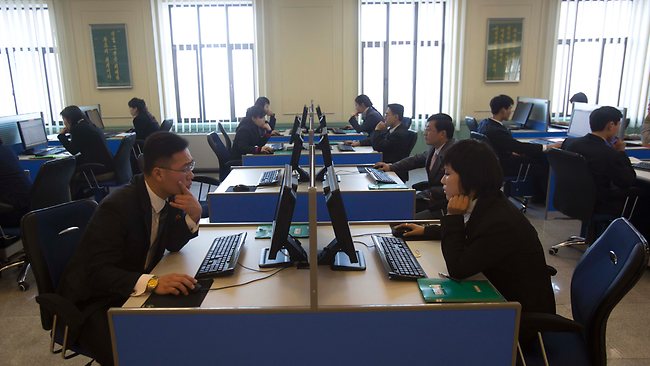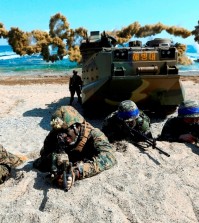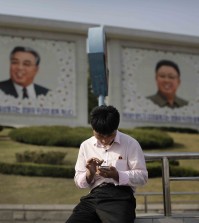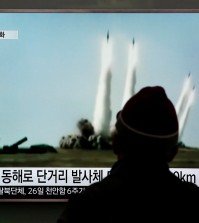- California Assembly OKs highest minimum wage in nation
- S. Korea unveils first graphic cigarette warnings
- US joins with South Korea, Japan in bid to deter North Korea
- LPGA golfer Chun In-gee finally back in action
- S. Korea won’t be top seed in final World Cup qualification round
- US men’s soccer misses 2nd straight Olympics
- US back on track in qualifying with 4-0 win over Guatemala
- High-intensity workout injuries spawn cottage industry
- CDC expands range of Zika mosquitoes into parts of Northeast
- Who knew? ‘The Walking Dead’ is helping families connect
N. Korean websites suffer ongoing 10-day Internet outage

North Korean students work at computer terminals inside a computer lab at Kim Il Sung University in Pyongyang, North Korea during a tour by Executive Chairman of Google, Eric Schmidt. North Korea is literally off the charts regarding Internet freedoms. There essentially aren’t any. But the country is increasingly online. Though it deliberately and meticulously keeps its people isolated and in the dark about the outside world, it knows it must enter the information age to survive in the global economy.(AP Photo/David Guttenfelder, File)
By Kim Hyo-jin
Major North Korean websites have been out of action for 10 straight days, according to reports Friday.
The websites hosted on Chinese servers have not been accessible since June 3. They include Pyongyang’s propaganda website, Uriminzokkiri, websites of Kim Il-sung Broadcasting University and DPRK Today.
“Web servers are running with no disruption, but we are not sure of the reason why the websites are unreachable,” an official of Xinwang, a Chinese server management company, was quoted as saying. Xinwang hosts the server of Uriminzokkiri.
But websites of Pyongyang’s state newspaper, Rodong Sinmun, and state-controlled media outlet KCNA are operating. Their servers are allegedly hosted inside North Korea.
The problem’s cause has not been verified, but some experts suggested a possible cyberattack.
It is not North Korea’s first Internet outage. It was disrupted for eight days in December, a few days after U.S. President Barack Obama warned of a “proportional response” to North Korea following the North’s alleged hacking of Sony Pictures.
Rep. Michael McCaul, chairman of the House Homeland Security Committee, virtually admitted in March that December’s Internet blackout was payback for the Sony hacking.
In November, a group of hackers broke into the computer networks of Sony Pictures Entertainment and released emails of its senior executives and personal information about employees. They demanded that “The Interview,” a film comedy that portrayed the assassination of North Korean leader Kim Jong-un, not be released.
The FBI stood by its conclusion that North Korea was behind the cyber attack, though the reclusive nation strongly denied involvement.















